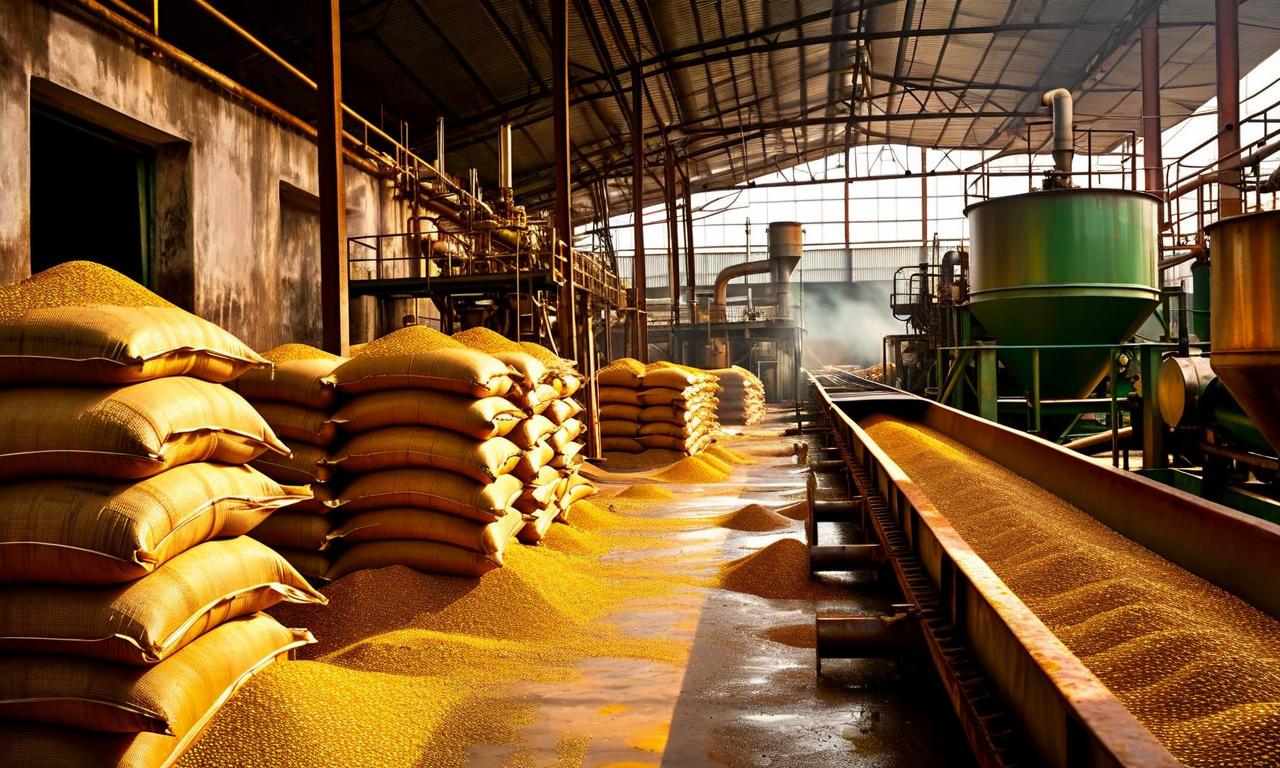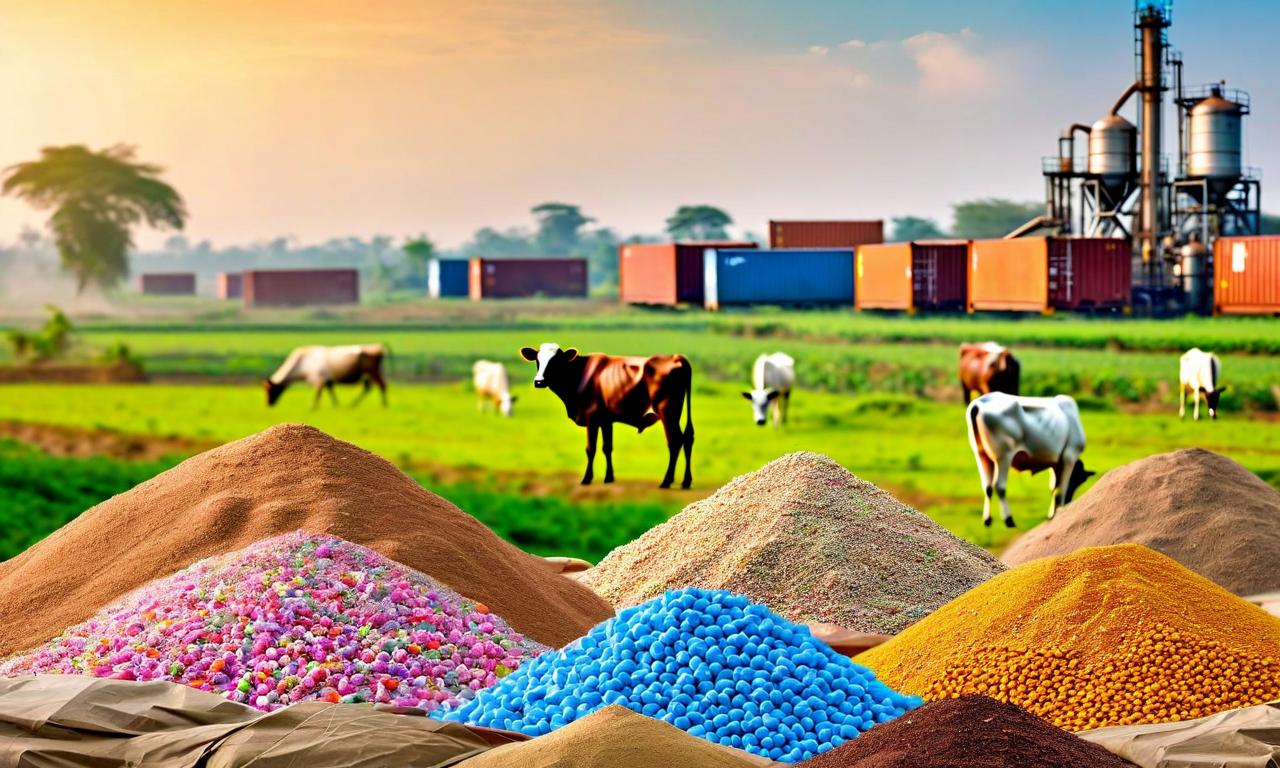SEA Urges Government to Lift Export Ban on De-Oiled Rice Bran
The Solvent Extractors' Association of India (SEA) has appealed to the government to lift the export ban on De-Oiled Rice Bran (DORB), set to expire in September 2025. SEA argues that the ban has led to price drops in protein meals and DORB, affecting rice bran extraction units, rice mills, and farmer incomes. Pre-ban, India exported 5-6 lakh tonnes of DORB annually, valued at approximately Rs 1,000 crore. The association claims the ban hasn't achieved its intended objective, as milk prices continue to rise despite falling DORB prices. SEA believes lifting the ban would revive exports, improve farmer returns, generate rural employment, and enhance India's global competitiveness in the DORB market.

*this image is generated using AI for illustrative purposes only.
The Solvent Extractors' Association of India (SEA) has made a strong appeal to the government, calling for the lifting of the export ban on De-Oiled Rice Bran (DORB). The ban, currently set to expire in September 2025, has been a point of contention for the industry body.
Appeal to High-Level Officials
SEA has taken its case to the highest levels of government, writing to senior ministers, including the Prime Minister. The association is urging officials not to extend the ban beyond its current end date of September 30, 2025.
Pre-Ban Export Figures
Before the implementation of the ban, India was a significant exporter of DORB:
| Category | Value |
|---|---|
| Annual export volume | 5-6 lakh tonnes |
| Export value | Approximately Rs 1,000 crore |
| Main markets | Asian countries |
Economic Impact of the Ban
SEA argues that the export restriction has had several negative consequences:
Price Fluctuations:
- Protein meal prices have fallen by nearly 50%
- DORB prices have dropped to Rs 10,000-11,000 per tonne
Affected Sectors:
- Rice bran extraction units
- Rice mills
- Farmer incomes
Market Loss: India is losing export markets to substitutes like DDGS (Distillers Dried Grains with Solubles) and maize
Questioning Ban Effectiveness
The association points out that despite the ban and the fall in DORB prices, milk prices continue to rise. This observation leads SEA to conclude that the ban has not achieved its intended objective.
Potential Benefits of Lifting the Ban
SEA believes that removing the export restriction would lead to several positive outcomes:
- Revival of exports
- Improved returns for farmers
- Generation of rural employment
- Enhanced capacity utilization in the industry
- Strengthened global competitiveness for India
As the debate continues, stakeholders in the DORB industry await the government's response to SEA's appeal. The outcome could have significant implications for the agricultural sector, rural economy, and India's position in the global DORB market.
























